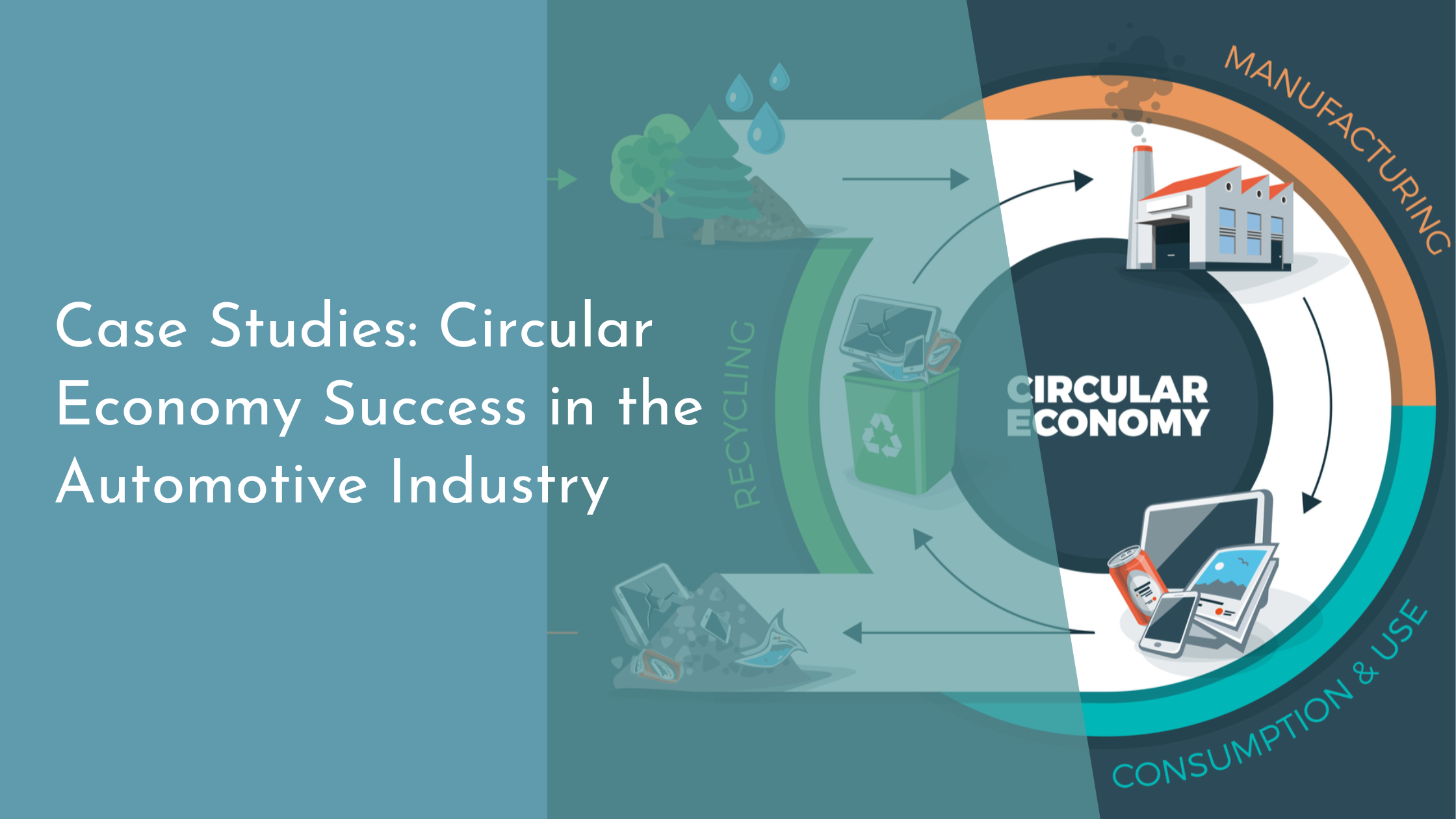Case Studies: Circular Economy Success in the Automotive Industry
The automotive industry is undergoing a transformative journey, driven by the principles of a circular economy. This approach aims to minimize waste and make the most of resources, offering a promising solution to the environmental challenges posed by traditional linear production models. With the increasing pressure on industries to adopt sustainable practices, the automotive sector is emerging as a leader in implementing circular economy strategies. This article explores the core concepts of the circular economy, highlights innovative recycling practices in car manufacturing, showcases pioneering automotive companies, and discusses the benefits and future prospects of this sustainable approach.
Introduction to Circular Economy Concepts
The circular economy is a systematic approach to economic development that is designed to benefit businesses, society, and the environment. Unlike the traditional linear economy, which follows a ‘take-make-dispose’ model, the circular economy emphasizes a regenerative system where products, materials, and resources are reused, refurbished, and recycled. In the automotive industry, this involves designing vehicles with end-of-life recovery in mind, utilizing materials that can be easily recycled, and implementing production processes that minimize waste.
A key concept within the circular economy is the idea of “closing the loop.” This means that the materials used in manufacturing are not discarded after use but are instead reintegrated into the production cycle. For automotive companies, this involves collaborating with suppliers and other stakeholders to ensure that every stage of the vehicle’s lifecycle supports sustainability. By adopting these circular strategies, automotive manufacturers can reduce their environmental footprint while also achieving economic benefits through cost savings and new business opportunities.
Innovative Recycling Practices in Car Manufacturing
Recycling in the automotive industry has advanced significantly, with manufacturers adopting innovative practices to ensure sustainability. One such practice is the use of recycled materials in the production of new vehicles. Companies are increasingly utilizing recycled steel, aluminum, and plastics, which not only reduces the need for raw materials but also decreases energy consumption and greenhouse gas emissions associated with material extraction and processing. Additionally, innovative technologies are being developed to recycle complex materials such as lithium-ion batteries, which are crucial for electric vehicles.
Another innovative recycling practice is the dismantling and remanufacturing of vehicle parts. Instead of discarding end-of-life vehicles, companies are investing in facilities where parts can be carefully removed, tested, and refurbished for reuse. This practice not only extends the lifespan of vehicle components but also offers consumers more affordable options for repairs and replacements. By creating a market for remanufactured parts, the automotive industry can significantly reduce waste and promote a more sustainable consumption model.
Pioneering Automotive Companies Embracing Circularity
Several automotive companies are leading the way in embracing circular economy principles, setting inspiring examples for the rest of the industry. One such company is BMW, which has made significant strides in sustainable production. BMW has implemented a comprehensive strategy that includes increasing the use of recycled materials, designing vehicles for easy disassembly, and developing innovative recycling technologies. The company has also set ambitious goals to reduce carbon emissions throughout its supply chain, further exemplifying its commitment to circularity.
Another pioneer in this space is Renault, which has established itself as a leader in vehicle recycling and remanufacturing. Renault operates a state-of-the-art recycling plant in France, where it processes end-of-life vehicles and reintroduces materials into its production lines. The company’s circular economy efforts have resulted in substantial reductions in waste and resource usage, as well as the creation of new jobs in the recycling sector. By demonstrating the economic and environmental benefits of circularity, Renault is paving the way for other automotive companies to follow suit.
Benefits and Future Prospects for the Industry
The adoption of circular economy practices in the automotive industry presents numerous benefits. Environmentally, it leads to a significant reduction in waste and resource consumption, helping to mitigate the impacts of climate change. Economically, it offers cost savings through the efficient use of materials and the creation of new revenue streams from recycled and remanufactured products. Additionally, circular economy strategies can enhance brand reputation and customer loyalty, as consumers increasingly value sustainability in the products they purchase.
Looking to the future, the prospects for the automotive industry in the realm of circular economy are bright. As technology advances and regulatory support for sustainable practices grows, more companies are likely to embrace circularity. This shift will drive innovation in vehicle design, manufacturing processes, and supply chain management. Furthermore, as the industry continues to evolve, collaboration between automotive companies, governments, and other stakeholders will be crucial in overcoming challenges and realizing the full potential of a circular economy. With continued commitment and investment, the automotive sector can become a model for other industries striving for sustainability.
In conclusion, the circular economy offers a compelling vision for the future of the automotive industry, one that aligns economic success with environmental stewardship. By rethinking traditional models of production and consumption, automotive companies have the opportunity to lead the way in creating a more sustainable world. As more companies adopt circular practices and embrace innovative recycling technologies, the industry can achieve significant environmental and economic benefits. Through collaboration, innovation, and a commitment to sustainability, the automotive sector can drive meaningful change and create a lasting positive impact for generations to come.

